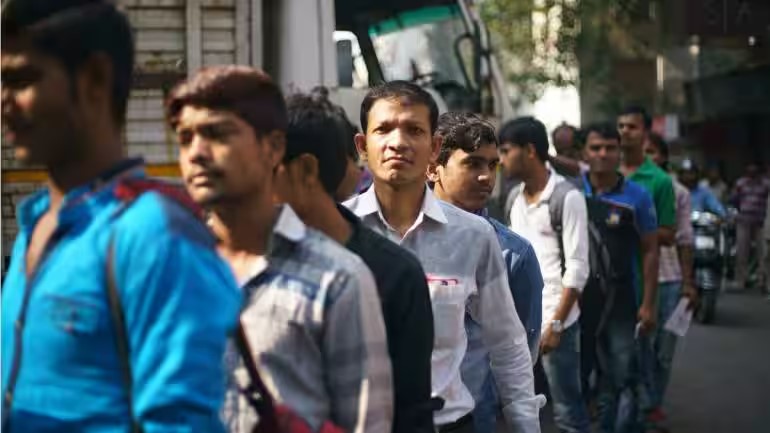As steps to improve employment, the focus on skill development and promoting entrepreneurship has the potential to bring about discernible changes

While debates may rage over the fact that education is too delicate a matter to be experimented with, the introduction of policies that defy pragmatism but continue to be pressed ahead with as a course of action has not been less perplexing either.
Overhauling the country’s education system just as any other change will always be resisted. For, although considered an inevitable part of life, change has never been accepted whole-heartedly.
It is said that change often introduces uncertainty, and people naturally prefer the natural and predictable.
The significant change introduced in the education policy is the transition from the traditional educational curriculum to a new model that stresses on holistic, flexible, and multidisciplinary learning for students.
To hold out against a change, it is necessary to understand the essence of the change that is being introduced or planned. As the fundamental shift or alteration that is taking place, it is essential to comprehend why it is happening and what aspects are being affected.
Ambiguities often accompany proposed changes! In that respect, the New Education Policy too is riddled with its own problems. For the simple reason that as much as the students and their parents, the teachers too are in a predicament of sorts considering that a majority of the teachers are not currently up-to-date with its implementation.
The confusion created over the start of the new academic year in April further accentuates the fact that even school managements are yet to come to terms with the new ‘arrangements’.
Hence the uncertainties that encumber a student in a learning environment where experimenting with the teaching methods periodically to structure a pattern that can amend with the changing times is being thought of as policies to further education, are too monumental to be discussed casually.
Protests, as that new mantra, have had an overwhelming effect on the way new programmes and policies by the government are perceived by the common man.
But rarely have these objections and disapprovals altered the course of the decision on any such matter with the government envisaging ways and means to bring them into effect sooner or later.
Eventually, the new pattern of education may turn out to be flawless with all the apprehensions raised over its implementation turning out to be baseless.
However, if it is the new education ‘regime’ that has puzzled the parents more than the students, it is the dilemma over an appropriate employment after studies that has troubled every youth after stepping out from the hallowed portals of learning after years of grind preparing themselves for a future that, they believed, would lead them to a rewarding career.
Despite rapid educational expansion, India’s unemployment rate remains high among the educated youth. The new Education Policy aims to address this problem by aligning education with skill development and industry needs.
With sincere efforts being made to bridge the gap between theoretical knowledge and practical application, it is believed that the initiatives by various colleges to encourage academia-industry interface would pay rich dividends.
Mandatory internship for higher education courses as proposed by the Chief Minister Pramod Sawant in the State’s budget for 2025-26 would amount to a measure of this sincerity. The ‘skills on wheels’ programme to provide skill training to the rural youth only fortifies this belief.
However, according to a UNICEF press release in the year 2021, without opportunities to build the right skills, millions of youth will struggle to find jobs and risk being left behind. The perceived skills gap among new job aspirants, highlighting a mismatch between the skills they possess and the needs of the modern workforce continues to be serious concerns for employers.
How does the new education regime propose tackling this anomaly and ensure a win-win outcome for all concerned! At a time when the Indian job-market is marred by the spectre of lay-offs, speculations that it would see a hiring surge in early 2025 do give reasons for some cheer.
Despite the fact that education and the job scenario are intrinsically linked, we however, have to understand that the unemployment situation is not solely limited to education! Considering the high school and college dropouts whose numbers are only spiralling with every passing year, joblessness is an economic phenomenon that has not received the sort of attention it actually deserves other than those routine hypes which go on to make grand political narratives.
The contention that entrepreneurship should be available to all, as anyone with an idea deserves a chance to innovate however appears vague considering that more than commencing a commercial venture, thoughts of establishing it as a viable one would be weighing heavily in the entrepreneur’s mind.
Besides the innovation that entrepreneurs bring into their projects, it is their business acumen more than anything else that will stand them in good stead and help their business to grow. The support from a variety of stakeholders plays a significant role in helping them thrive as well.
Although there has been a prolific rise in the number of startups in the country, scepticism over the high competition making it impossible for new business endeavours to succeed continues to be a deterring factor.
Undoubtedly, self-employment is the best form of employment. But can such a trend alleviate the unemployment scenario as could be expected! Besides, the limitations of self-employment have always been argued upon. As measures to improve employment, the focus on skill development and promoting entrepreneurship has the potential to bring about discernible changes.
However, at a time when the unchecked surge in unemployment is being seen as the possible reason for the ‘crime epidemic’ which appears to have erupted in many advanced economies, it is pertinent to have determined efforts being made to understand factors impacting job creation.